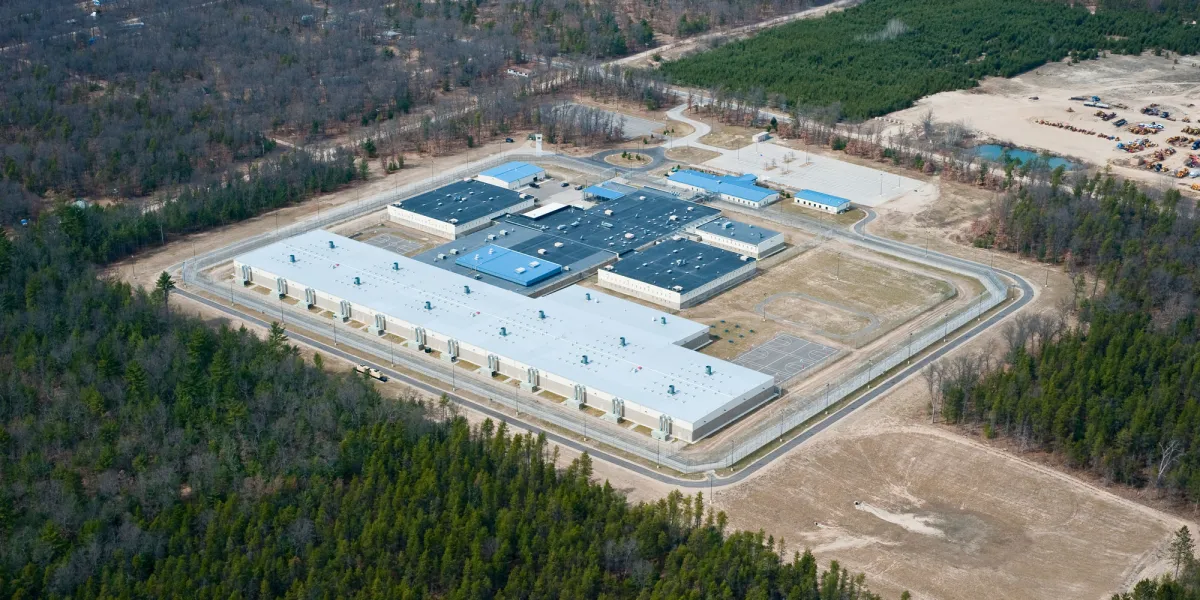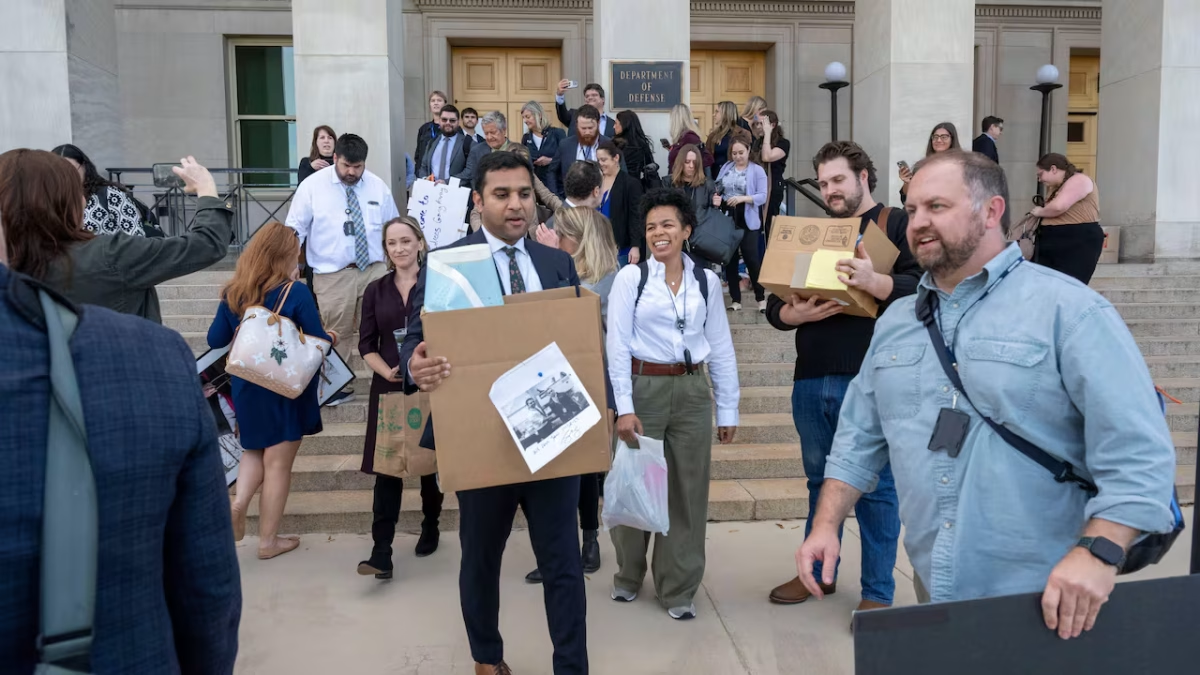On June 16, the first immigrants to be detained by ICE were sent to a facility located in the rural city of Baldwin, Michigan. This newest detention center, known as the North Lake Correctional Facility, is being labeled as the “largest immigration center in the Midwest.”
It can fit up to 1,800 detainees for their max capacity. It provides medical care, legal aid, family visitation, general and legal library access, dietitian-approved meals, religious and specialty diets and recreational amenities.
The facility was originally opened in 1999 as a state-run facility. It had been going through multiple phases of being opened and closed, with most recently reopening in 2019 during the Trump administration until its closing in 2022. Shortly after its closing, during the Biden administration, 53 advocacy groups from Michigan and other states urged former President Joe Biden and Gov. Gretchen Whitmer to keep the facility closed to prevent it from turning into an ICE detention center.
Baldwin is a small city located on the west side of Michigan. The city has a population of around 1,000 people, with only a little more than 1% of the population being born outside of the country. As of a 2023 census, no homes reported speaking a non-English language as their primary language.
Non-Hispanic Whites make up a majority of the city’s population, with a total of 63% of the city’s residents. Black and Hispanic residents make up 26% of the population.
The facility is owned by the nation’s largest private prison and electronic monitoring company GEO Group INC. On June 10, the company had a legal complaint dropped by The Environmental Protection Agency (EPA) over its alleged mistreatment of employees.
During the Biden administration, GEO Group had allegedly had workers using the disinfectant “Halt” at the Adeltanto Immigration and Customs Enforcement facility in California. Users of the product are advised to use protective clothing such as goggles or a face shield and chemical resistant gloves to avoid any harmful events. The EPA warns that the use of no protective clothing could result in irreversible eye damage and skin burns.
In addition, during the COVID-19 pandemic, health concerns grew for inmates within the facility as the company delayed the release of COVID-19 statistics and information. The treatment towards the detainees led to many activists and family members sending a plea to the U.S. Department of Justice and Bureau of Prisons to handle the situation.
The company has also been a major donor for President Donald Trump’s political campaign. They have been estimated to have donated $1 million to Make America Great Again Inc., along with more millions being donated to other recipients that supported the President’s run for reelection. In addition, nearly 68% of their profits are sourced from the U.S. Immigration and Customs Enforcement (ICE).
GEO’s ICE Processing Centers have also been independently accredited by the American Correctional Association and the National Commission on Correctional Health Care, according to the company.
The state of Illinois currently has laws that prohibit the use of private prisons. In addition, state laws passed in 2021 ended local contracts and cooperative agreements with the U.S. Immigration and Customs Enforcement (ICE) for county detention centers.
However, immigrants detained in the state could be transported to neighboring states, including the North Lake Correctional Facility.
State Sen. Elissa Slotkin has criticized the presence of ICE in the state. On July 15, she introduced a bill that would require agents to identify themselves. In a statement posted on X, she expressed her dissatisfaction with how they have dealt with undocumented immigrants.
“In recent months, we have seen police, wearing hoodies and masks, make arrests that look more like kidnappings in an authoritarian country,” Slotkin said. “Law enforcement should be required to identify themselves while enforcing our immigration laws.”
On July 4, nearly 100 demonstrators gathered in a coalition of advocacy groups to protest against the opening of the detention center.
However, many residents also hope that the facility will help create more jobs. In an interview with Bridge Michigan, Lake County Commissioner Robert Sanders expressed the reasoning as to why the facility needs to open.
“There’s a large portion of our country that doesn’t support ICE detentions. I try to keep that out of what our decisions are, because we don’t have any control of that,” Sanders said. “Step back and look at Lake County, what we have. It’s the poorest county in the state of Michigan. We’re trying to keep our schools, our seniors, and our people safe through the taxes that they capture from those facilities.”
Around 20% of residents in Lake County live below the federal poverty line. They are reliant on the tax money brought in from the facility, expecting to receive some profit from the $70 million expected in annualized revenues.
While the current living standards for detainees are unknown, those surrounding the facility will expect to face an economic boom from tax revenues.









